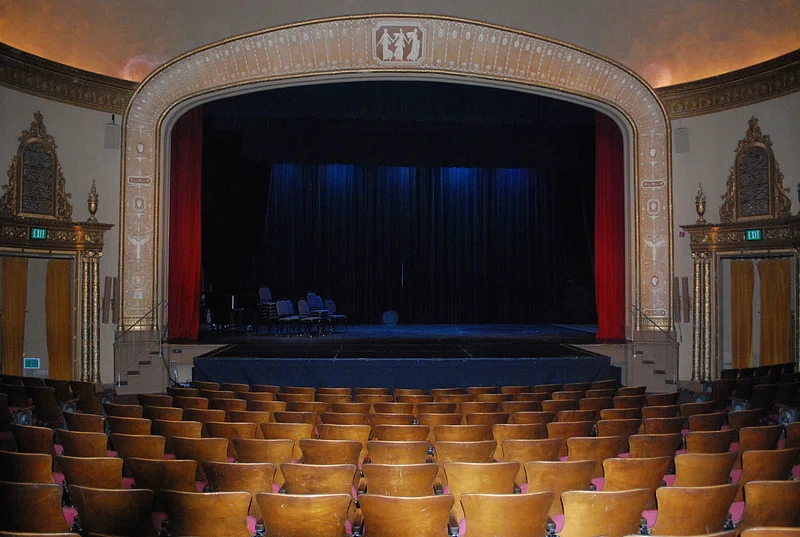In the last half-decade, the medium of ‘recorded theatre’ has undergone a boom, with it now being the expectation that performances of all levels not only be observed in person but also preserved on film. While there are obvious advantages to this new hybrid medium, are we witnessing the downfall of the priority of ‘LIVE’?
The concept of recorded theatre seems an oxymoronic one: how can a medium defined by its being live, in person, and on-stage suddenly become pre-recorded, remote, and on-screen? Just as digitalisation has done with countless other concepts, the very definition of theatre is changing.
Recorded theatre is undoubtedly helpful in its ability to widen the catchment of those able to witness outstanding shows. For example, National Theatre Live claims to offer audiences the best seats in the house from the comfort of their own home or a cinema at a fraction of the price of a seat in the stalls, with performances such as Jodie Comer’s ‘Prima Facie’, Rosamund Pike in ‘Inter Alia’ and Ncuti Gatwa in ‘The Importance of Being Earnest’ all on offer. But most will acknowledge that there is always something missing from seeing the performances second-hand. After all, theatre is unique in its spontaneity: a performance is a one-off event that cannot be replicated and the same can be said for the audience experience of a live show.
But perhaps what we lose in ‘live feel’, we gain in education: through the increasing culture of recorded theatre, students, actors and fanatics alike can analyse performances through watching and rewatching in a way that’s never been possible before. We are living in a world in which the memories of some of the greatest performances of the age are being lifted out of the mouths of their audiences and placed onto the screens of the masses: Benedict Cumberbatch’s performance as The Creature in the NT’s ‘Frankenstein’ is not just the stuff of myth, held in the memories of the select few live-audience members, only accessed through attempted articulation to others, but it’s now a single search away on YouTube and has become a cultural staple of recorded theatre. We have access to master performers and classic shows. In this way, there is a huge new opportunity for aspiring actors, writers and directors to study their favourite plays.
So how then should student drama embrace recorded theatre? At Oxford University, the student theatre scene is rich and incredibly broad with a range of performances varying in budget, venue, cast size and content. But is it worth investing in a university-wide means of recording all productions and preserving the beauty of student theatre for generations of thespians? Or should the intimacy that student theatre invites be left to those dedicated to the live shows?
For many, this potential investment is not necessarily practical. Budgeting is already stretched thin for most productions, and recording performances would only add to the strain and for what purpose?
If student theatre can remain raw and impromptu as it is in its current un-recorded state, let it. The beauty of student drama is in its slightly unrefined, almost haphazard nature; every performance is the product of genuine desire to perform for the sake of performing. Audiences revel in sitting on that knife-edge of potentially witnessing something groundbreaking or something downright awkward, and recording those kinds of unexpected works would simply dull that thrill. Despite the pressing academic deadlines and the general business of university life, student plays are the result of impassioned individuals taking the time to make a statement and make it on a stage of all places. There is no need to reinvent the wheel here, folks. The joy of university plays is their unexpected brilliance, so let’s keep it unexpected.


